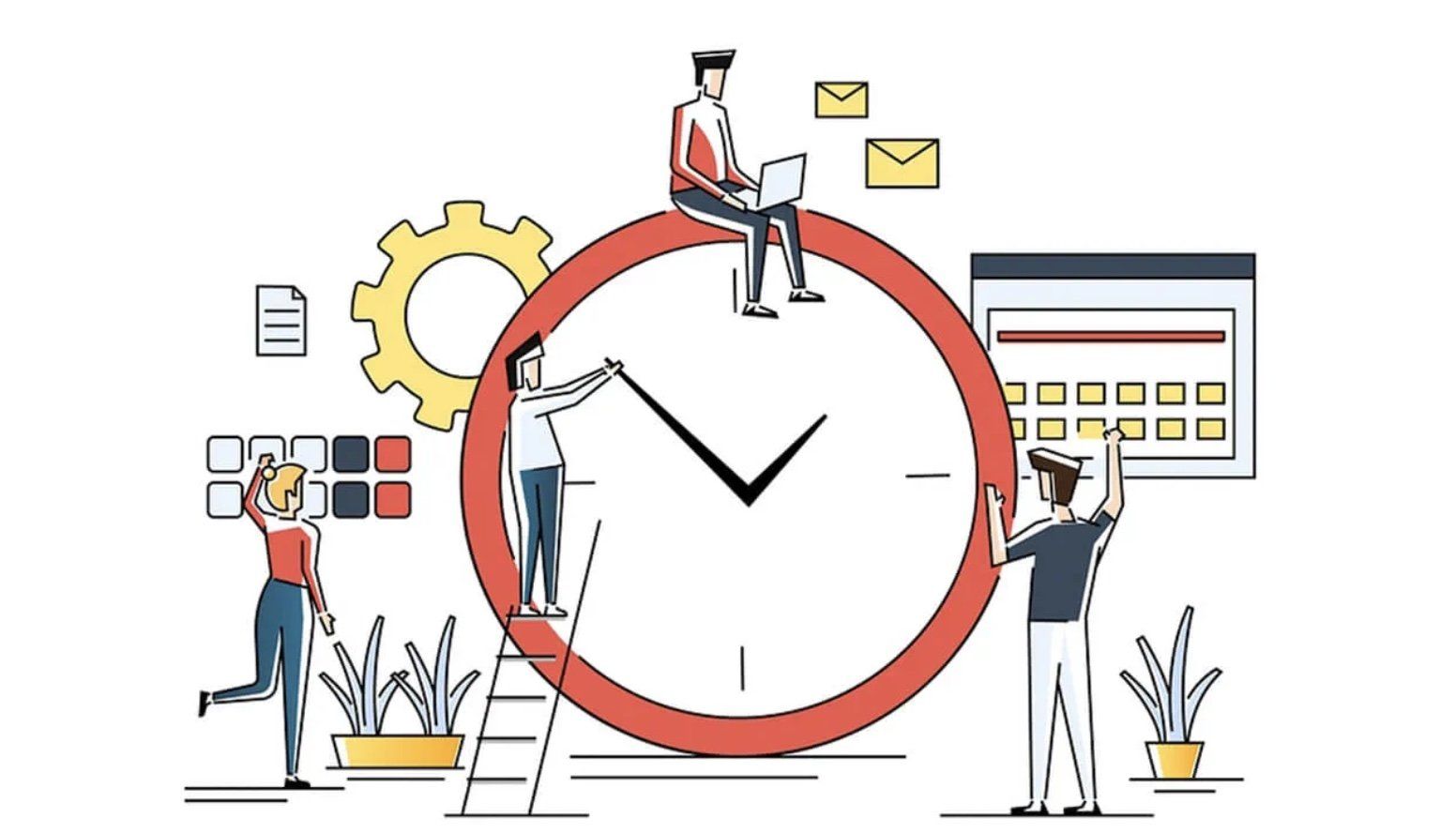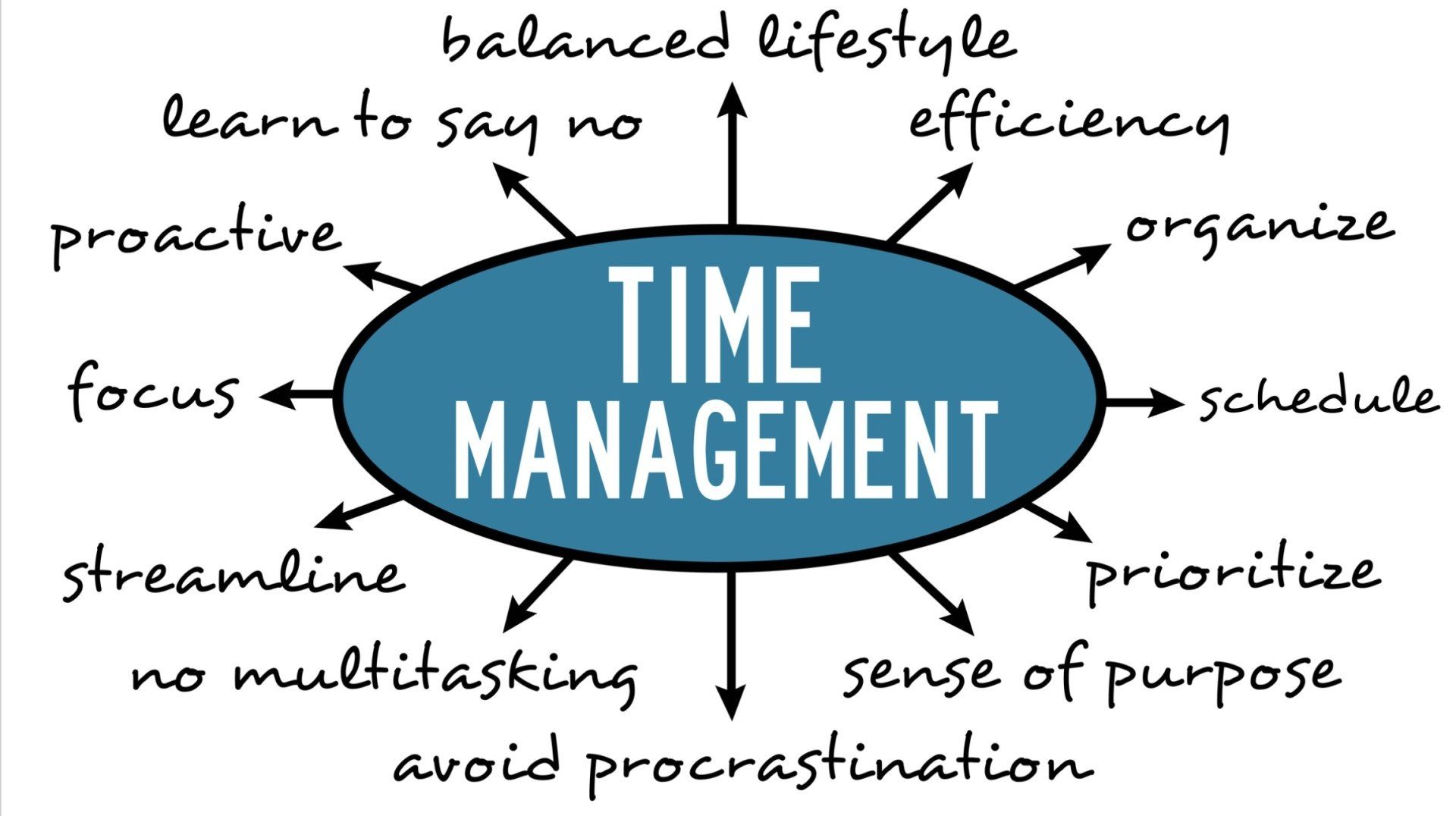

If you've ever found yourself saying that you don't have enough time to do everything or that you need to be getting more done each day, it's very likely that you don't have a grasp on how you use your time each day. Read on to find out how to track your time and make small tweaks to your habits that will allow you to finally find the time to get projects done, enjoy your hobbies, and make real progress on your life goals.

Free Up Time To Work On What Matters Most
In order to change your life, you must think both expansively - What’s my purpose? What are my values? Where do I want to be in 5 years? - as well as at a granular level - What am I going to do today? How can I achieve my goals? What needs my attention right now?
In this article, we're going to focus on the granular units of your life: the minutes. The hours. The days. Because as Annie Dillard says, "How we spend our days is, of course, how we spend our lives.”And while we all have the same 24 hours in a day, how we spend them makes all the difference between a life of fulfillment and one of resentment and regret.
My goal is to help you begin the work of cleaning up the job site of your life. We're going to dig a proper foundation and then begin laying the rebar and pouring the concrete.Without the proper foundation, your success, if achieved, will only be ephemeral.
Because a foundation built on sand, not on something solid and durable, simply will not last.

The Culture of Busyness
Our lives are busy and chaotic. Each day, we are managing competing priorities–work deadlines, family/home obligations, health goals, financial worries, etc. But until we can create the space and time to think about the higher-order things—like what we really want out of life—we're bound to fail at achieving major successes in any realm.
In my experience, the best way to create that space is to perform an audit on your own life to understand how you
actually spend your time. No matter how much ambition you have, or how many big goals you've set for yourself, you will likely struggle to succeed until you have an accurate understanding of where your time goes. By understanding how you spend your time, you can make the adjustments necessary to carve out the space needed to contemplate those higher-order things—which is nearly impossible to do if you are perpetually rushing through your days and weeks.
Many of my clients struggle to "get it all done," though much of what they are really doing is chasing easy wins: knocking out emails, putting out fires, hopping between tasks.
From outward appearances, they appear super busy, yet in reality, they aren’t making real progress. They’re mostly spinning their wheels.
In order to stop spinning and start driving, one of the first things I work with clients on is tracking how they spend their time, from the moment they wake up until the moment their head hits the pillow. We track both time and activities in order to see what they are doing and for how long.
Within a few days, patterns emerge around email, multitasking, social media use, and prioritization. Armed with this data, we begin to reshape their approach to work.
Let me make something clear: I'm not someone whose stance is that we must squeeze as much productivity as possible out of each waking hour.
Rather, my goal is to provide you with the tools and systems to free up time to work on the things that advance you closer to your dreams.
By working from a place of clarity regarding your time usage, you’ll experience less stress, enjoy more time for rest and recovery, and have more energy for what matters most.

Time Tracking and Why It’s So Important
We all have the same 24 hours in a day. The same 168 hours in a week – 56 of which will be spent sleeping. What we do with the remaining 112 waking hours is the difference between your own personal success and reading about other people’s.
If you find yourself saying that you don't have enough time to do everything, or that you need to be getting more done, then time tracking is for you. By tracking our time, we become aware of how we are
actually using our days, as opposed to how we
think we are using them.
Once you begin tracking your time, you may come to see that you’re spending much more time doing things like scrolling social media or watching YouTube videos than you thought. I’m not judging! As I said, this is an exercise in awareness.
If you don’t have an accurate picture of how your time is being spent and what you’re getting done with that time, how can you possibly establish realistic goals and timelines for accomplishing them?
Let alone set aside the time to develop new skills or to map out your life vision and goals?
Let's just say that in your mind, you check Instagram for 10-15 minutes per day, but in reality, it’s closer to 60 minutes. If this is the case, how can you know that you need to take steps to alleviate your social media consumption? Instead of testing out a new digital organizational tool for managing your To-Do list, or trying to email while driving, what you really need to do is set a time limit on scrolling. Or delete the app altogether.
We Are Terrible at Estimating How Long Things Take
When it comes right down to it, most of us are terrible at managing our time. Especially when it comes to allocating time to getting certain things done. For example, try answering these questions:
- How long does it take you to create a client proposal or write a paper for a class?
- How much time do you need to research a topic for a client or a presentation?
- How long does it take to write an email?
- How many hours of TV do you watch per week?
- How often do you scroll social media on your phone and for how long on average?
I'm willing to bet that the amount of time you
think these things take and how long they
truly take do not match up. And this is likely the result of one or both of these problems:
Problem One
In Laura Vanderkamp’s book, 168 Hours: You Have More Time Than You Think, she explains that we tend to overestimate certain tasks based on social perceptions.
For example, she explains that although many of us dread routine housework or recurring administrative tasks, in reality, they don’t take up that much time. But since we do them frequently, it can feel like we spend a lot of time on them. In fact, based on her research, most people tend to think these tasks take double the amount of time they actually take.
Since we think these things take more time than they actually do, we feel like we have less time than we actually do. We feel rushed and overwhelmed—like there isn’t enough time to get it all done. And when we feel this way, we tend to put off doing the big, important work that enables us to make real progress towards our goals. There’s more pressing stuff that needs to be done now.

Problem Two
On the flip side, we tend to underestimate how much time we spend on things like watching TV, surfing the internet, or scrolling through social media feeds. Just think of the last time you fell down the Twitter rabbit hole. What feels like just a few minutes turns out to be something closer to 30-45 minutes.
Once we realize how long we've been zoned out mindlessly, the panic monster sets in and we scramble madly to get back to work, launching back into our "productive tasks," which truly, may not be the important work, but rather the urgent work. We fire off some easy emails. We schedule another meeting. We feel better momentarily until we realize that another day has gone by and we still haven’t started that new project we've been talking about.
Tracking Our Time Makes Us More Accountable and Productive
Once you begin tracking your time, you will get a much clearer sense of how your hours are actually spent. After tracking my own time for a week, I realized how much time I spent scrolling news feeds and switching between tasks. With my new awareness, I was able to change my behavior by 1)
scheduling
time to read the news, instead of checking newsfeeds whenever a notification popped up, 2) batching administrative tasks and email, and 3) turning my Saturdays into a “no work day” in order to be fully present for my family.
Making these changes allowed me to learn the value of single-tasking. Like many of us, I used to jump in and out of my inbox, juggle multiple tasks at once, and allow interruptions to dictate where my attention was focused. But as it turns out, multitasking comes with significant costs.
For one, our brains aren’t built for it—we actually perform
worse on tasks that we're multitasking. Second, it costs up to twenty minutes each time we are interrupted or when we switch between tasks to recover the same level of focus and attention that we had before we were redirected. And if you add up all the interruptions from new emails, or from notifications on our phone, we begin to see that
if we choose instead to stay focused on the task at hand, we can get a lot
more done during the same amount of (or even fewer) hours.
Everyone Has the Power To Use Their Time Well
For many of us, life is already busy, and the speed of change and the amount of information available to us are only increasing. There’s no shortage of things competing for our time and attention. Entire business models are built on distracting us. Yet, while our attention fattens corporate profits, giving our attention away leaves us exhausted and overwhelmed.
To compensate, we jump from task to task, fire off emails from the dinner table, scroll social media while walking, or grind out a few hours of work late at night because it’s the only quiet time we get in a day. We push and push. We try the latest productivity hack or download another app for managing our To Do List. When we do this, we are treating the symptoms, not the cause. We need to stop trimming the leaves and instead begin to yank the weeds out by the roots. We do this by going back to basics and looking at something we do control - how we use our time.
By tracking our time, we come to understand how we are spending it. Using this data, we can make better decisions about where we focus our time and attention during the day. As we do this, we will free up time that we can use to work on our most important projects and to better define our goals and make plans for how to achieve them.
With these newfound hours, we will finally be able to carve out time to think about our longer-term vision for our lives.
In my next article,
How To Restructure Your Life (and your Days!) With Time Tracking, we will dive deeply into time tracking and how it can revolutionize your workdays–and your time off. I'll show you how to track your time over a two-week period and then provide detailed guidance on how to structure your days effectively. As a result of the insights you'll gain from tracking your time, you'll finally have the energy to work on those important projects and goals that have been falling to the wayside for longer than you care to consider.

